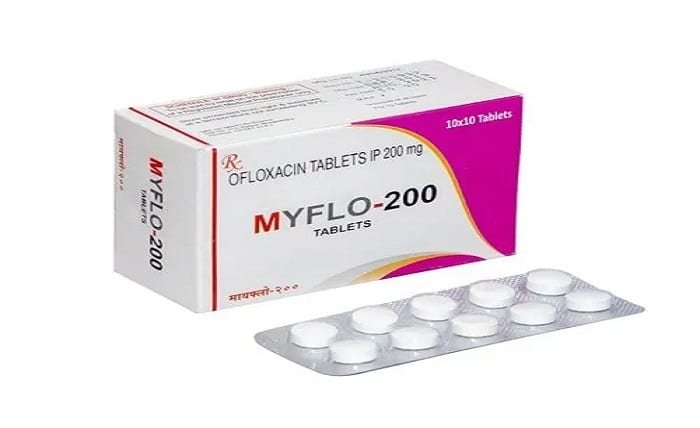MiFlow Tablet: Uses, Benefits, Side Effects, and More

The MiFlow tablet is a popular medication designed to address various health conditions, and it has become widely recognized for its effectiveness. Whether you’re a patient or a healthcare provider, understanding the MiFlow tablet is crucial for informed decision-making. This blog post covers everything you need to know about the MiFlow tablet—from its uses and benefits to its side effects and precautions.
What is MiFlow Tablet?
The miflow tablet is a pharmaceutical medication formulated to address specific health conditions. It is often prescribed for patients seeking relief from certain ailments, thanks to its targeted effects. The MiFlow tablet comes in various doses, depending on the needs of the patient. Understanding what the MiFlow tablet is and its purpose is essential for anyone considering this treatment, as it helps to clarify its potential impact on health.
Uses of MiFlow Tablet
The MiFlow tablet is commonly used to treat a range of health issues, making it versatile for medical use. Physicians may prescribe it for conditions such as inflammation, pain management, or certain infections, depending on its formulation and intended use. Patients benefit from the MiFlow tablet’s efficacy in targeting specific ailments, making it a suitable choice for a variety of treatments. It’s essential to consult a healthcare professional to understand if the MiFlow tablet is appropriate for your condition.
Benefits of MiFlow Tablet
One of the primary benefits of the MiFlow tablet is its effectiveness in managing symptoms associated with various health conditions. Its formulation often includes ingredients that provide relief from pain, reduce inflammation, or combat infection, depending on its intended use. Additionally, the MiFlow tablet is typically fast-acting, allowing patients to experience relief in a relatively short time. The benefits of the MiFlow tablet make it a valuable option for individuals seeking prompt and effective treatment for their health issues.
Dosage and Administration of MiFlow Tablet
The dosage and administration of the MiFlow tablet vary depending on the patient’s age, health condition, and the severity of symptoms. Generally, it is recommended to follow the doctor’s prescribed dosage to ensure the best results. Misuse or incorrect dosage of the MiFlow tablet can lead to undesirable side effects or reduced effectiveness. For optimal results, patients should adhere to the prescribed dosage schedule and avoid self-adjusting without professional guidance.
Possible Side Effects of MiFlow Tablet
Like many medications, the MiFlow tablet may come with some side effects. Common side effects include mild discomforts like nausea, dizziness, or headaches. In rare cases, patients may experience more severe reactions, such as allergic responses. It’s essential to monitor your body’s response to the MiFlow tablet and report any unusual symptoms to your healthcare provider. Understanding the potential side effects can help users be vigilant about their health while using this medication.
Interactions with Other Medications
The MiFlow tablet can interact with other medications, which may influence its effectiveness or increase the risk of adverse effects. Patients should inform their doctors about any other medications they are taking before starting the MiFlow tablet. Common interactions may occur with medications like antibiotics, anticoagulants, or certain pain relievers. By being aware of potential interactions, patients can minimize risks and maximize the benefits of the MiFlow tablet.
Precautions to Take with MiFlow Tablet
When taking the MiFlow tablet, there are certain precautions that users should follow. It is recommended to avoid alcohol and other substances that may intensify side effects. Additionally, patients with underlying health conditions, such as liver or kidney disease, should inform their healthcare provider to ensure the MiFlow tablet is safe for them. Following these precautions helps ensure the effective and safe use of the MiFlow tablet.
How to Store MiFlow Tablet
Proper storage of the MiFlow tablet is essential to maintain its effectiveness and safety. It should be stored at room temperature, away from direct sunlight, and out of reach of children. Avoid storing the MiFlow tablet in humid environments, like bathrooms, as moisture can affect the medication. Ensuring proper storage helps retain the MiFlow tablet’s potency, making it safe and effective for future use.
Cost and Availability of MiFlow Tablet
The MiFlow tablet is widely available in pharmacies and online stores, making it accessible to those who need it. Its cost can vary based on the location, dosage, and pharmacy. Some insurance plans may cover the MiFlow tablet, reducing out-of-pocket costs for patients. Checking with your pharmacy or healthcare provider about the availability and cost of the MiFlow tablet ensures you’re well-prepared for its purchase.
Consulting Your Doctor Before Using MiFlow Tablet
Before starting any new medication, including the MiFlow tablet, it is crucial to consult with a healthcare professional. Your doctor can evaluate your health needs and determine if the MiFlow tablet is the right choice for your condition. They can also provide personalized guidance on dosage, potential side effects, and any necessary precautions. Consulting a doctor before using the MiFlow tablet ensures safe and effective treatment tailored to your health requirements.
Conclusion
The MiFlow tablet offers significant benefits for patients dealing with specific health issues. From pain relief to infection management, it is a versatile medication with a wide range of uses. However, understanding its possible side effects, interactions, and necessary precautions is crucial to ensuring its safe use. Always consult your doctor before starting any new medication, including the MiFlow tablet, to ensure it is suitable for your individual health needs.
FAQs
1. What is the MiFlow tablet used for?
The MiFlow tablet is used to treat various health conditions, including pain relief, inflammation reduction, and infection management.
2. Are there any common side effects of the MiFlow tablet?
Yes, common side effects of the MiFlow tablet include nausea, dizziness, and headaches, though more severe reactions can occur in rare cases.
3. Can I take MiFlow tablet with other medications?
It’s important to consult your doctor, as the MiFlow tablet can interact with certain medications, potentially affecting its effectiveness.
4. How should I store my MiFlow tablet?
Store the MiFlow tablet at room temperature, away from moisture and sunlight, to maintain its effectiveness and safety.
5. Do I need a prescription for the MiFlow tablet?
In most cases, the MiFlow tablet requires a prescription to ensure its appropriate use based on individual health needs.




